E-Archive
Interview
in Vol. 20 - September Issue - Year 2019
One World, One Mission, One Global Leader in Abrasive Blasting Equipment
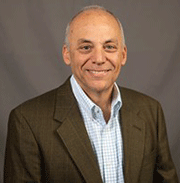
Tom LaMantia
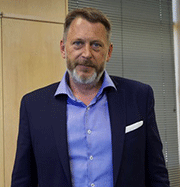
René Böttrich


Since 1974, Clemco International has supplied abrasive blasting equipment to the world.
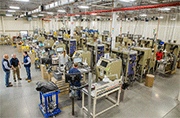
Hitchiner Manufacturing is thrilled with its 31 Clemco pressure cabinets that it uses to deburr and clean investment castings of aerospace parts.
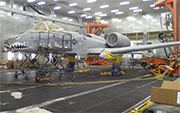
Clemco robotic blast machines prepare to dry-strip aircraft at Hill Air Force Base.
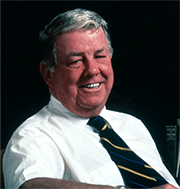
Alfred J. Cleary
Clemco, the World's Largest Manufacturer of Compressed-Air-Powered Abrasive Blast Equipment, Is Committed to Serving Its International Customers.
Clemco Industries Corporation’s blast machines, blast cabinets and blast rooms have been used on every continent of the globe, as well as safety equipment and accessories that it manufactures. Entire blast facilities that it has built for military and commercial clients also are located around the world. One might not expect this from a company headquartered in the rural town of Washington, Missouri, in the Midwestern region of the United States. But about half of Clemco’s business is outside the United States—and the plan is for these sales to grow.
One Clemco Around the World
"Clemco’s mission is to help our customers prepare surfaces for a safer and more productive world," says Tom LaMantia, president of Clemco Industries, and CEO and president of Clementina-Clemco Holdings Inc., the parent company of Clemco Industries and Clemco International Inc. "So, of course, our international business is critical to us, and this is where our One Clemco business model comes in."
"The Japanese have a term, genba." LaMantia explains."It’s part of the lean-manufacturing strategy developed by Toyota. Genba means ‘the real place.’ As to how this relates to One Clemco, this means that our management teams go to where the real work happens because this is where the answers are: the factory floor, actively interacting with customers to discover their needs, and coordinating with our international subsidiaries so we can learn and improve in tandem. We listen to our customers and employees throughout the world—because they have the answers. And this is how we strengthen our companywide, cross-continental culture of service and consistency everywhere we do business."
Clemco began in 1941 as a contractor equipment-rental business in San Francisco, California, and quickly evolved into a manufacturer of blast machines when its founder, Alfred J. Cleary, correctly thought Clemco could manufacture better blast machines than the ones it was buying. The manufacturing business became so successful that in 1958, Clemco opened its first distributorship outside the United States, in the United Kingdom. Clemco products could soon be found cleaning Buckingham Palace, London’s Tower Bridge and the Tower of London, as well as oil rigs in Singapore, mining equipment in Australia, and storage tanks in Saudi Arabia. So in 1974, Clemco took the next big step and launched Clemco International GmbH, a subsidiary with an office and factory near Munich, Germany. To this day, this location focuses on serving Europe, the Middle East and Africa. Over time, Clemco International branched out with subsidiary offices in Estonia, Spain and Singapore, as well as an office and factory in Denmark and a factory in Hungary.
"In Europe, Clemco International is seeing growth in post-production processing of 3D-manufactured parts, renewable energy, such as hydropower, and with decontamination cleaning in the nuclear industry," says René Böttrich, president of Clemco International. "However, our main source of revenue is still from large contractors."
Back in the United States, following decades of success headquartered in San Francisco and also operating a manufacturing facility in Memphis, Tennessee, between 1990 and 1991, Clemco consolidated all U.S. manufacturing and engineering operations as well as all but a few administrative functions to its location in Washington, Missouri. Then in 1997, Clemco sold its equipment-rental business so that it could focus solely on manufacturing and selling blast equipment. In 2018, the few administrative functions remaining in San Francisco relocated to Washington, and the Washington location became Clemco’s corporate headquarters. All North and South American operations are now headquartered in Washington, while Clemco International in Germany continues to oversee operations of all international subsidiaries.
"These consolidations enabled Clemco to operate leaner in the United States," says Kurtis Ohse, Clemco director of marketing, "which allowed us to focus more on international markets. In fact, just this last May, I and other members of the executive team in the U.S. attended a weeklong conference in Germany with the leadership of all the international subsidiaries."
"We discussed current trends in blasting, such as automation and robotics," says Itziar Usategi, who attended the conference and is general manager of Clemco International, S.A., which is located in Spain and also serves Portugal. "In addition, the renewable-energy sector is booming, in particular the wind industry. In our region, Clemco equipment is used to abrasive-blast corrosion off wind-turbine towers and the turbine components that generate electricity. For this sector, we supply not only portable blast machines, but also blast booths and dust collectors, and recovery and ventilation systems.
"At the conference we also discussed Clemco’s mission," Usategi adds, "that the equipment we manufacture helps make society safer, and that Clemco is made up of people who are loyal and committed to their work. This is One Clemco."
Also attending the conference was Niels J. Assersen, general manager of Munkebo Clemco, which has an office and manufacturing facility in Denmark. Munkebo is an internationally renowned manufacturer of suction units, abrasive-transport and recovery systems, and air-handling systems such as dry-filter systems, paint-spray filters, dehumidifiers and heating units. Clemco International bought Munkebo in 2006.
"My father established Munkebo in 1963," Assersen says, "and I and two brothers began running the company in 1988. Currently, our main markets are Europe and Russia, and also Australia. Shipyards are our largest customers, but we also build complete blast- and paint-room installations, equipment for heavy-metal industries, and equipment for contractors performing surface-treatment jobs of any kind, any size."
Clemco’s commitment to further developing its One Clemco model with its international subsidiaries is so strong that in June of this year, Munkebo project manager Kristian Assersen, who is one of Niels’ sons, arrived in Washington for a nine-month stay. Kristian is learning more about Clemco’s U.S. operations and will return to Denmark with strategies on how to further unify Clemco’s business practices worldwide.
"Of course, there are differences with how Clemco does business in Europe and the United States, in part because Europe has many more languages, cultures and regulatory environments than the U.S. But something Munkebo and Clemco U.S.A. have in common are loyal workforces. Most Munkebo employees have been with us at least 20 to 25 years; one of our sales employees over 40 years. Likewise, Clemco in the U.S. has many employees with more than 20 years with the company, and others with over 30, even over 50 years."
Although Munkebo primarily serves Europe, its products are also sold in North America. In July 2018, a Munkebo MB2000-ES Vacuum System went into service in Quebec City, Canada, on a bridge under construction that runs parallel to the Quebec Bridge, which spans the St. Lawrence River. The system is being used to vacuum up steel grit blasted by six Clemco 6-cuft Classic Blast Machines and a trailer-mounted, 160-cuft Big Clem Blast Machine, which are stripping mill scale off the bridge to prepare it for surface coating.
"The Munkebo system is far better and simpler to use than competitor models," said Jonathan Michaud, sales director of Philexpert Inc., the Clemco distributer who supplied the Munkebo vacuum system and the Clemco blast machines. "It has no design flaws I have seen, and our customers say the same thing. They love that the machine has cartridges instead of dust bags, like competitor vacuum systems. Absolutely no complaints."
One Clemco in the U.S.A
As part of its One Clemco philosophy, Clemco executive team members, engineers and product managers in the United States routinely visit customers to understand what they like and would like to see improved, with their Clemco products.
In June, product manager Aaron Wimmer traveled to Hitchiner Manufacturing Co., Inc. in New Hampshire. Hitchiner is a high-volume producer of investment castings and fully finished, casting-based subassemblies and components for the automotive, aerospace and defense industries. In 2017, Hitchiner purchased 13 Pulsar III Pressure Cabinets equipped with 600 cfm power modules. Hitchiner was so pleased with how well the cabinets deburred and cleaned investment castings of aerospace parts that in 2018, it ordered another 18 cabinets with custom-engineered modifications.
"We visit customers to find out how we can build better machines for them," Wimmer explains. "For example, Hitchiner is thrilled with the custom modifications we made to their cabinets, such as placing level sensors inside the cabinets’ pressure vessels to monitor media levels, and installing ergonomic lift kits that enable operators to raise and lower the heights of cabinets so that they can comfortably look through the view window and more accurately blast workpieces.
"We also received valuable feedback in ways to improve," Wimmer adds. "Hitchiner suggested adding an hour meter to the cabinets to better monitor maintenance intervals, and shared that the flanges for the cabinet gloves are a little short, which depending on how the gloves are attached, can make replacing them time-consuming. Clemco makes an effort to listen to our customers—because they have the answers."
A customer Clemco has had decades of collaboration with is Hill Air Force Base, located in Utah in the United States.
"We have been retrofitting and building blast facilities for 30 years or longer at Hill," says Gary Gerner, manager of Clemco’s Job Order Administration Department, which coordinates all logistical, engineering and installation efforts for engineered industrial blast facilities.
Gerner has made numerous trips to Hill during his three decades working at Clemco to help with installations and to learn more about what the U.S. Air Force needs from blast facilities. To name a few, in 1998, Gerner helped install a blast room that was built to dry-strip cargo aircraft, and in 2011, Gerner was at Hill to help install two robotic blast machines in a hanger designed for dry-stripping fighter aircraft.
Just last year at Hill, Clemco completed a partial retrofit of a blast room, which included installing a heavy-particle-separator partial classification system with a 50-cuft storage hopper, as well as two 6-cuft blast machines. This July, Clemco shipped two identical blast rooms to Hill that will be installed side-by-side. The blast rooms each include a 1,000 lb monorail with an electric hoist, a full-floor M-Section® Pneumatic Recovery System, two 6-cuft blast machines, and a CDF-40 Dust Collector with explosion venting and HEPA filtration. The blast rooms will clean aircraft parts with plastic media.
People and Service
As Clemco approaches its ninth decade in business, it continues to adapt its mission and One Clemco philosophy to the needs of an increasingly global market. However, all of Clemco’s strategies are influenced by the business and life philosophies of its founder, Alfred J. Cleary.
"People say you can’t grow these days anymore and that the economy is not what it used to be, that there is no room for small companies to grow anymore in the United States or any place in the world," Cleary explained in one of his final interviews. "I totally disagree with that. There is so much room to grow if you remember two words: people and service."
For Information:
Clemco Industries Corp.
One Cable Car Drive
Washington MO 63090, USA
Tel. +1.636.239-4300
E-mail: info@clemcoindustries.com
www.clemcoindustries.com



























